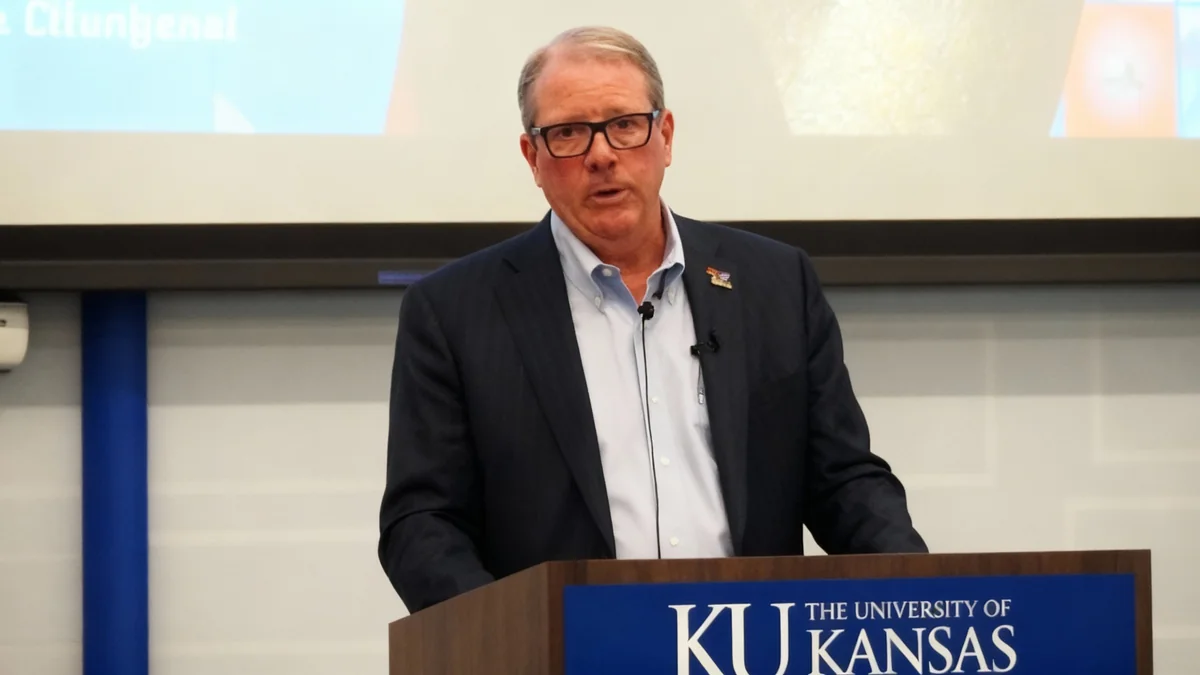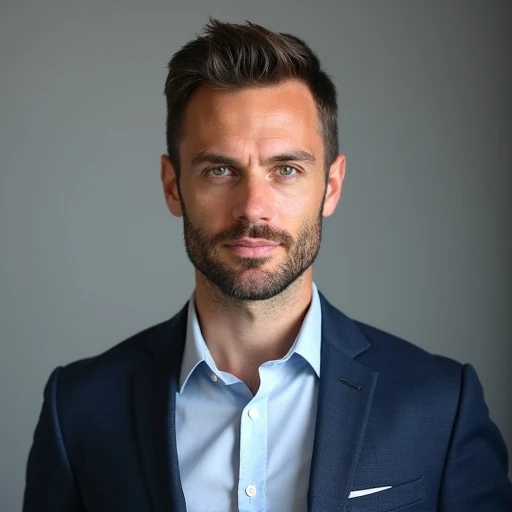University of Kansas Chancellor Doug Girod highlighted significant threats to higher education, including unstable funding, declining public confidence, and the rise of artificial intelligence, during his annual address on October 17, 2025. Despite these national pressures, Girod reported that KU has achieved record enrollment and substantial growth in research funding, positioning the university in a strong but uncertain environment.
Key Takeaways
- National sentiment for higher education has dropped from 70% to 40% in less than a decade, according to the chancellor.
- KU faces budget cuts of $32 million on its Lawrence campus and $39 million at its Medical Center due to inflation and flat state funding.
- The university celebrated record student enrollment for the second consecutive year and reached over $600 million in research funding in 2024.
- Ongoing contract negotiations with the faculty union and a potential legislative challenge to academic tenure present local hurdles for the university.
A National Crisis in Higher Education
During his State of the University Address, Chancellor Doug Girod presented a sobering view of the landscape for American colleges. He identified several major headwinds creating a period of significant uncertainty for institutions nationwide.
A primary concern is the erosion of public trust. Girod noted a sharp decline in positive public sentiment toward higher education, falling from 70% to just 40% in under ten years. This shift raises fundamental questions about the perceived value of a college degree.
"The question of, is the investment worth it, is really the question that’s being asked a lot of our society," Girod stated during his speech. "It’s creating a time of fairly significant uncertainty across the country right now."
Compounding this issue are demographic trends, specifically a projected drop in the number of college-age students. Financial pressures also loom large, with unpredictable federal research funding and modest state budgets failing to keep pace with inflation.
The Impact of Artificial Intelligence
Girod emphasized that artificial intelligence will be a transformative force, describing it as both a "disruptor" and an opportunity for evolution. He predicted that AI would fundamentally alter teaching methods, research processes, and administrative operations.
"It’s going to completely change how we educate. It’s going to completely change how we conduct research," he said. "It certainly is going to completely change how we conduct our business of higher education."
University of Kansas Reports Record Successes
Despite the challenging national environment, Girod reported several key successes for the University of Kansas. He framed the university's current state as strong, possibly the strongest in its history, while acknowledging the unprecedented level of external uncertainty.
KU by the Numbers
- Enrollment: Record student numbers for the second year in a row.
- Research Funding: Grew from $337 million in 2017 to $611 million in 2024.
- Fundraising: The endowment campaign has surpassed $2 billion toward its $2.5 billion goal.
Enrollment and Research Growth
For the second consecutive year, KU has achieved record student enrollment. The current freshman class is the third largest in the university's history. Girod also highlighted improvements in student retention and graduation rates.
"We have the most Kansas kids we’ve ever had. We have the most out-of-state kids we’ve ever had," Girod remarked. "That’s a great place to be at this moment in time."
Research funding has also seen consistent growth over nine years, reaching $611 million in 2024. However, the chancellor cautioned that this pipeline has "slowed down profoundly" in the current year, citing changes in federal research and development funding priorities.
Administrative and Fundraising Milestones
Progress continues on the "One KU" initiative, a project designed to unify the administrative structures of the Lawrence, Wichita, and Kansas City campuses. The goal is to improve efficiency and strategic alignment across the university system.
The university's 10-year fundraising campaign has also been a major success. With two years remaining, it has already secured over $2 billion in commitments, well on its way to a $2.5 billion target. The funds are designated for the Lawrence campus (50%), KU Medical Center (30%), and athletics (20%).
Local Pressures and Internal Challenges
While celebrating its achievements, the university is also navigating significant local challenges, including budget cuts, labor negotiations, and potential legislative action in Topeka.
Budget Constraints
The 2025 Kansas Legislature approved a flat base budget for KU. With operating costs surging 30% over the last five years, this effectively amounts to a budget cut. In response, KU is implementing spending reductions of $32 million on the Lawrence campus and $39 million at the KU Medical Center.
Girod explained that a portion of the savings will be redirected to address compensation. "On the Lawrence campus about half of that cut will go to market pay for faculty and staff, but that really just gets us started on that journey," he said.
Ongoing Union Negotiations
During the chancellor's address, some faculty and staff members held signs reading "Fair contract now!" and "Stop the delay." This demonstration highlighted the lengthy contract negotiations with United Academics of KU, the union representing faculty and academic staff, which formed in April 2024.
David Smith, a sociology professor, noted the delay. "We have been in contract negotiations for well over a year now," he said. "It’s been something like 450 days since those contract negotiations began."
Key issues in the negotiations include improved pay, especially for adjunct faculty, and establishing formal shared governance between the administration and union members in university decisions.
Potential Threat to Academic Tenure
Chancellor Girod also warned of a renewed legislative effort to redefine academic tenure in Kansas. He anticipates that lawmakers in the 2026 session will reintroduce a bill that seeks to remove tenure's status as an "entitlement, right or property interest." A similar bill was defeated in 2025.
"We’ve already been told it’s coming back again," Girod said. "We know that’s something we’re going to have to pay attention to because it’s so critical to what we do and who we are as an institution."





